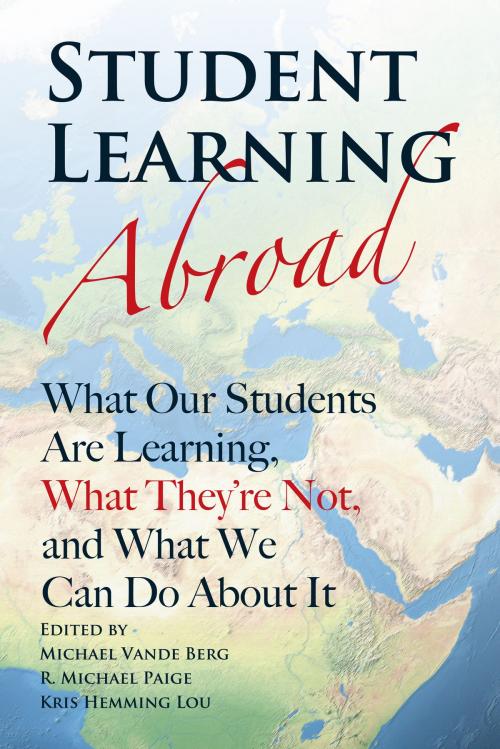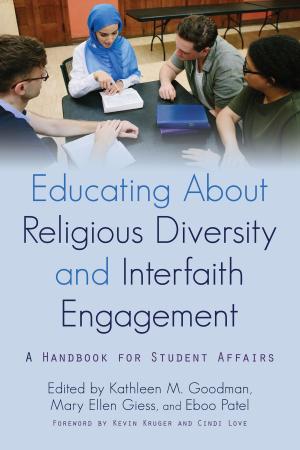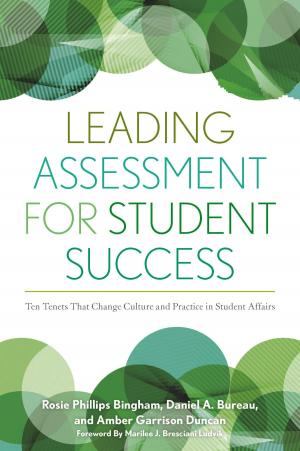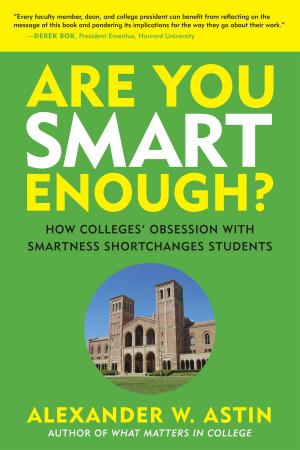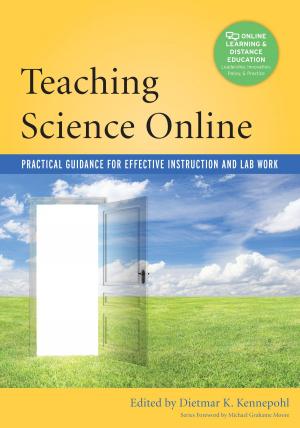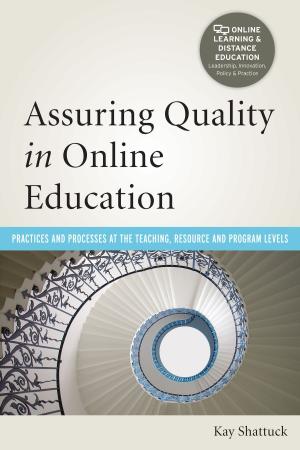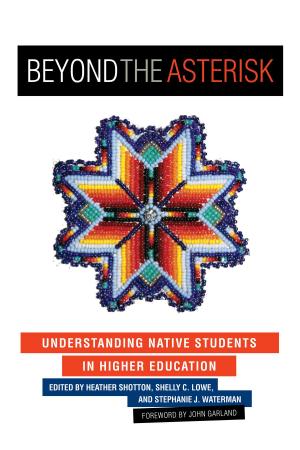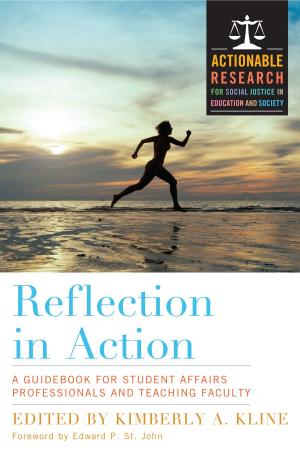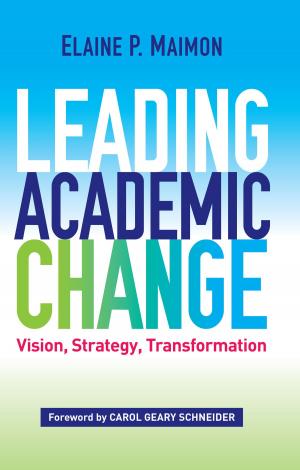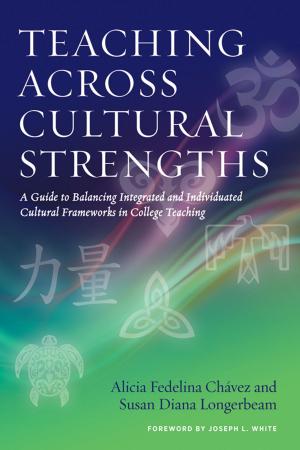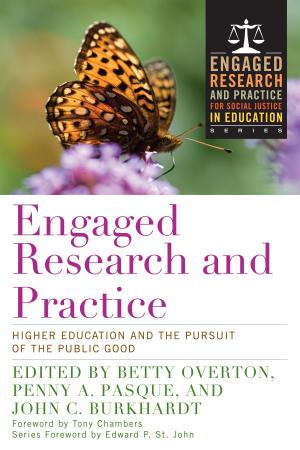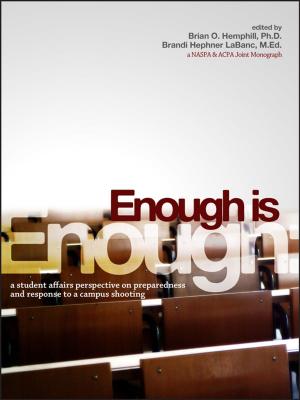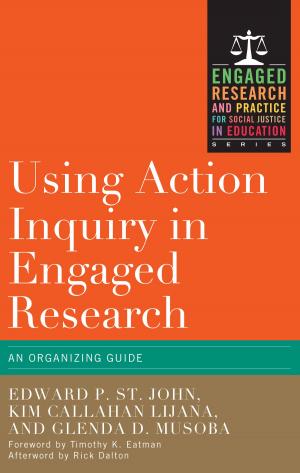Student Learning Abroad
What Our Students Are Learning, What They’re Not, and What We Can Do About It
Nonfiction, Reference & Language, Education & Teaching, Higher Education| Author: | ISBN: | 9781579227166 | |
| Publisher: | Stylus Publishing | Publication: | October 29, 2012 |
| Imprint: | Stylus Publishing | Language: | English |
| Author: | |
| ISBN: | 9781579227166 |
| Publisher: | Stylus Publishing |
| Publication: | October 29, 2012 |
| Imprint: | Stylus Publishing |
| Language: | English |
"The book is a good source for study-abroad professionals and has the ability to provide direction for programs needing new life breathed into them, particularly at a time when budgets are shrinking, calls for accountability are increasing, and students deserve, more than ever, to have truly meaningful study-abroad experiences."?The Review of Higher Education
"Argues for the re-evaluation of longstanding assumptions and practices in study-abroad programs."?The Chronicle of Higher Education
A central purpose of this book is to question the claims commonly made about the educational benefits of study abroad.
Traditional metrics of enrollment increases and student self-report, and practices of structural immersion, are being questioned as educators voice growing uncertainty about what students are or are not in fact learning abroad. This book looks into whether these criticisms are justified—and what can be done if they are.
Student Learning Abroad reviews the dominant paradigms of study abroad; marshals rigorous research findings, with emphasis on recent studies that offer convincing evidence about what undergraduates are or are not learning; brings to bear the latest knowledge about human learning and development that raises questions about the very foundations of current theory and practice; and presents six examples of study abroad courses or programs whose interventions apply this knowledge.
This book prompts a re-consideration of long-held assumptions, beliefs and practices about teaching and learning in study abroad and reexamination of the design and delivery of programs. In doing so, it provides a foundation for responding to the question that many faculty and staff are now asking: What do I need to know, and what do I need to be able to do, to help my students learn and develop more effectively abroad?
"Argues for the re-evaluation of longstanding assumptions and practices in study-abroad programs."?The Chronicle of Higher Education
A central purpose of this book is to question the claims commonly made about the educational benefits of study abroad.
Traditional metrics of enrollment increases and student self-report, and practices of structural immersion, are being questioned as educators voice growing uncertainty about what students are or are not in fact learning abroad. This book looks into whether these criticisms are justified—and what can be done if they are.
Student Learning Abroad reviews the dominant paradigms of study abroad; marshals rigorous research findings, with emphasis on recent studies that offer convincing evidence about what undergraduates are or are not learning; brings to bear the latest knowledge about human learning and development that raises questions about the very foundations of current theory and practice; and presents six examples of study abroad courses or programs whose interventions apply this knowledge.
This book prompts a re-consideration of long-held assumptions, beliefs and practices about teaching and learning in study abroad and reexamination of the design and delivery of programs. In doing so, it provides a foundation for responding to the question that many faculty and staff are now asking: What do I need to know, and what do I need to be able to do, to help my students learn and develop more effectively abroad?
"The book is a good source for study-abroad professionals and has the ability to provide direction for programs needing new life breathed into them, particularly at a time when budgets are shrinking, calls for accountability are increasing, and students deserve, more than ever, to have truly meaningful study-abroad experiences."?The Review of Higher Education
"Argues for the re-evaluation of longstanding assumptions and practices in study-abroad programs."?The Chronicle of Higher Education
A central purpose of this book is to question the claims commonly made about the educational benefits of study abroad.
Traditional metrics of enrollment increases and student self-report, and practices of structural immersion, are being questioned as educators voice growing uncertainty about what students are or are not in fact learning abroad. This book looks into whether these criticisms are justified—and what can be done if they are.
Student Learning Abroad reviews the dominant paradigms of study abroad; marshals rigorous research findings, with emphasis on recent studies that offer convincing evidence about what undergraduates are or are not learning; brings to bear the latest knowledge about human learning and development that raises questions about the very foundations of current theory and practice; and presents six examples of study abroad courses or programs whose interventions apply this knowledge.
This book prompts a re-consideration of long-held assumptions, beliefs and practices about teaching and learning in study abroad and reexamination of the design and delivery of programs. In doing so, it provides a foundation for responding to the question that many faculty and staff are now asking: What do I need to know, and what do I need to be able to do, to help my students learn and develop more effectively abroad?
"Argues for the re-evaluation of longstanding assumptions and practices in study-abroad programs."?The Chronicle of Higher Education
A central purpose of this book is to question the claims commonly made about the educational benefits of study abroad.
Traditional metrics of enrollment increases and student self-report, and practices of structural immersion, are being questioned as educators voice growing uncertainty about what students are or are not in fact learning abroad. This book looks into whether these criticisms are justified—and what can be done if they are.
Student Learning Abroad reviews the dominant paradigms of study abroad; marshals rigorous research findings, with emphasis on recent studies that offer convincing evidence about what undergraduates are or are not learning; brings to bear the latest knowledge about human learning and development that raises questions about the very foundations of current theory and practice; and presents six examples of study abroad courses or programs whose interventions apply this knowledge.
This book prompts a re-consideration of long-held assumptions, beliefs and practices about teaching and learning in study abroad and reexamination of the design and delivery of programs. In doing so, it provides a foundation for responding to the question that many faculty and staff are now asking: What do I need to know, and what do I need to be able to do, to help my students learn and develop more effectively abroad?
